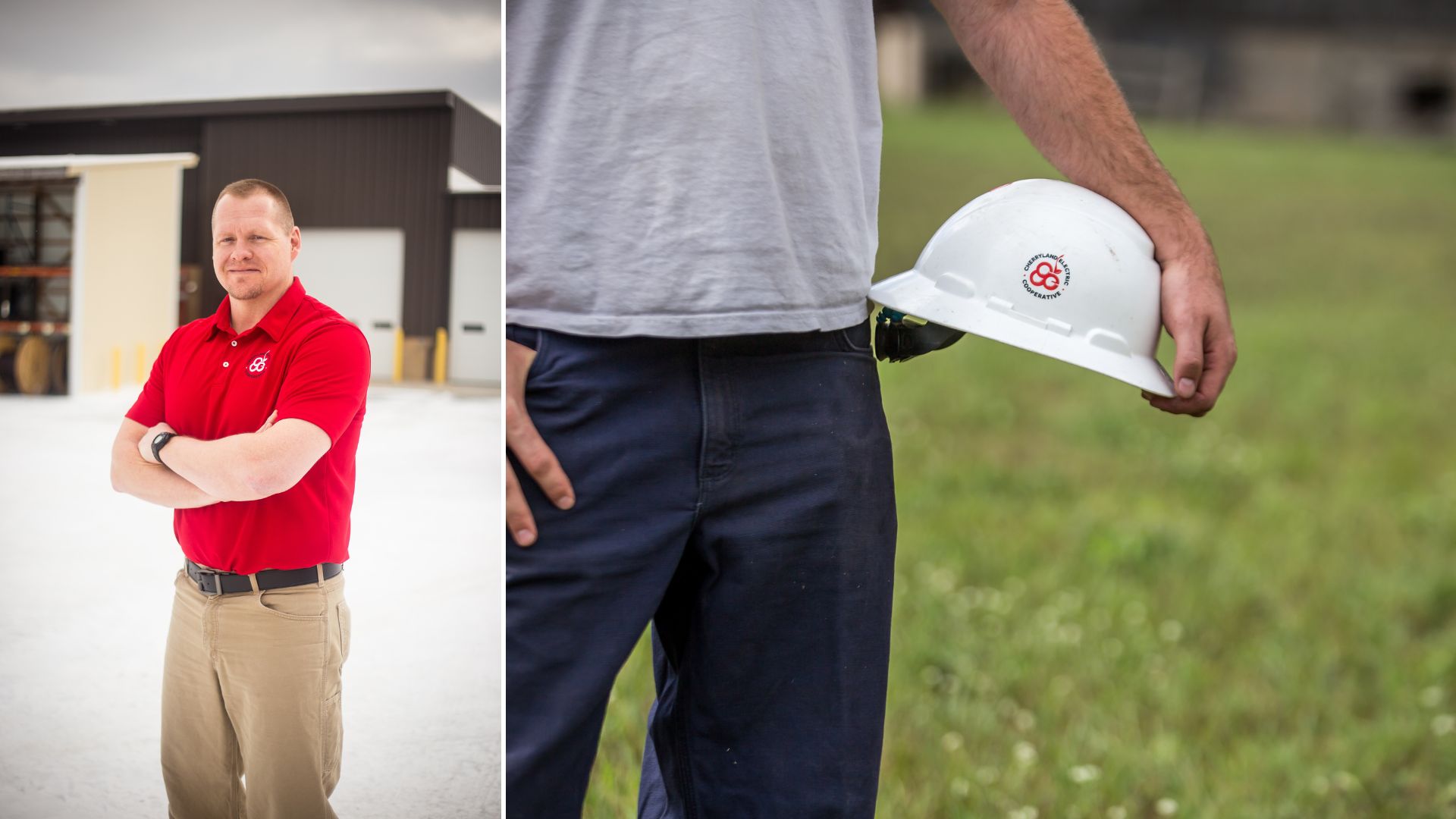April 18 is Lineworker Appreciation Day! Between the dedication, long hours, and often dangerous work they do, safety is at the core of it all.
At Cherryland, safety isn’t just a set of rules we follow; it’s a way of life. There’s even a team at your co-op dedicated to making sure our employees, members, and greater community stay safe.
Let’s get to know the leader of that team—Safety and Operations Manager Jeff Puffer.
Q: Tell us a little bit about your background and how you landed at Cherryland.
A: I worked for 15 years on the municipal side (primary water, waste water, and utilities) in the city of Cadillac and city of Manton. After that, I moved over to Wolverine Power Supply as an I&C Technician working on the instrumentation and controls within their substations. While I was at Wolverine, I had the chance to visit all the co-ops and get to know the people working there. I knew I eventually wanted to make my way to Cherryland.
I started at Cherryland nearly nine years ago as a meter technician. As a life-long athlete and high school football coach, I’m a little competitive. I wanted to push myself to be better, so I took advantage of some leadership opportunities to try and learn some new things. Safety was the first opportunity to grow my career at Cherryland that I was passionate about exploring. When the safety director position opened up, I applied and got the job. It was about the same time that the leadership at Cherryland wanted to start putting a bigger emphasis on the importance of safety. From there, they added me to the management team and, after a couple of retirements, my department has grown and shifted to encompass the lineworkers and mechanics, and that’s where we are today.
Q: What do you do as safety and operations manager?
A: Safety is the most important thing. There are a couple of different lenses you can look through. The first is the safety of employees. Making sure they’re trained and getting the resources they need to do their jobs, very dangerous jobs for some, and making sure they’re working safely so we don’t experience a tragedy that could’ve been prevented.
The second lens is the compliance side of things. While we’re smaller than a lot of other utilities, we still have to meet all the same MIOSHA rules. There are a lot of laws we have to make sure we’re in line with, and all kinds of standards and rules, whether they’re set by the department of transportation, the state, federal laws, you name it; all of those things can change on a yearly basis or even more often. So a really important part of my team’s job is to stay on top of those changes and keep our practices in line with those requirements. Safety is a huge undertaking and our safety coordinator, Megan, helps us with a lot of that.
At Cherryland, we’re always trying to be a leader in our industry, especially when it comes to safety. We’re always thinking forward about how we can do something better, safer, or more efficiently.
Q: We often talk about safety and how it’s a top priority for us here at Cherryland. What does that mean to you?
A: I just try to make it real and the philosophy is simple. I try not to talk about the rules and what to do and what not to do, what to wear and what not to wear, etc. We talk about the hazards. The real situations that could hurt you or even worse. From there we can look at those situations and discuss – what can we do to keep that from happening.
When we approach safety from that point of view, it becomes more than just rules. When our employees are involved in setting our practices to best keep everyone safe, they’re committed to not just following those best practices and “rules,” but they will hold each other accountable, too.
Q: Cherryland’s mission is: Member-Focused. Safe. Affordable. Reliable. How does the co-op live out the “Safe” part of our mission?
A: When our employees are safe, our members are safer, and in turn our cooperative family and entire community is safer. On top of all the safety practices we have for our everyday operations, we go out and give free safety presentations and trainings to anyone who wants one. We talk with all kinds of industries and tailor those safety presentations to what they’re doing. Whether it’s businesses, local first responders, schools, you name it—we do everything we can to make sure our community knows how to be safe around our poles, wires, and electricity in general.
We find ourselves working alongside these different groups in emergency situations whether it be a storm, fire, car-pole accident, etc. When our team shows up, they show up not only to do their job, but to keep the other first responders safe while they do theirs.
The last thing you ever want is to see someone get hurt when you know there’s something you could’ve done to prevent it.
Q: How does Cherryland invest in the safety of our members and employees?
A: As a member-owned cooperative, we put a lot of thought into where we spend our members’ money. When I think about how we invest in safety, I think of the onsite employee trainings, our community safety demonstrations, and the quality equipment we provide so our staff can do their jobs safely. Safety is one of those things that can be hard to measure because, if we do our job right, how do you measure how many accidents, injuries, or worse were avoided thanks to the time and money invested in safety?
Q: Can you talk a little bit about RESAP, what it is, and how it works?
A: RESAP stands for Rural Electric Safety Achievement Program. It’s essentially an audit of our safety programs—where we’re doing well and where we can get better. In Michigan, our statewide association takes the lead and organizes a team of five to seven other safety and operations professionals to visit other co-ops around the state and assess them based on a whole bunch of questions developed by the National Rural Electric Cooperative Association (NRECA).
That team of visiting safety professionals looks at the entire co-op, top to bottom, from office employees to lineworkers, from high hazard to low hazard, policy, training, compliance—every angle you can think of. Then they grade you based on the questions provided by NRECA. The goal isn’t just to get the good grades—it’s to find your blind spots.
You may have top marks in three specific areas you’ve given a lot of attention to over the past couple of years, but that may mean you’ve neglected another area. The RESAP process helps us refocus our energy into where we can create an even better safety program.
Q: What are you most proud of when you look at Cherryland’s safety programs?
A: Without a doubt, the thing I’m proudest of is that we have a culture at Cherryland where every employee here isn’t just safe because we ask them to be. They choose to do the right thing, and they’re invested in keeping themselves, the members, and their coworkers safe.
It goes back to the idea that safety is a tough one to measure. We can be proud of the zero accidents in however many days, but we can’t really measure the things that never happened or even came close to happening because of the Cherryland team’s ownership of the safety culture at work and in our community.



Leave A Comment